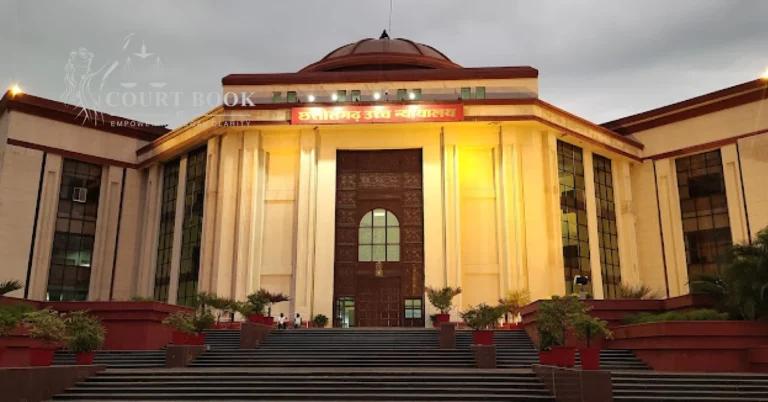The Chhattisgarh High Court recently underlined a strong reason for appellate courts to interfere when trial courts ignore relevant and convincing materials without justification.
A Division Bench comprising Chief Justice Ramesh Sinha and Justice Ravindra Kumar Agrawal made this observation while overturning the acquittal of accused persons involved in a brutal murder case.
“While exercising the appellate jurisdiction against a judgment of acquittal, the High Courts or appellate Courts are fully empowered to appreciate and reappreciate the evidence adduced on behalf of the parties while reversing the judgment of the trial Court. The appellate Court is required to discuss the grounds given by the trial Court to acquit the accused and then to dispel those reasons.”
Background of the Case
- The matter reached the High Court through an acquittal appeal filed under Section 378(1) of the Criminal Procedure Code.
- The appeal challenged an order passed by the Additional Sessions Judge, North Bastar, Kanker, which had acquitted several accused.
- The case was based on an FIR lodged by Lachhuram, who alleged that his father, Raghunath, was murdered by Naxalites, i.e., the accused persons.
Read also: Chhattisgarh High Court Informed: Closure Report Filed in POCSO Case Against Mohammed Zubair
Incident Summary:
- The accused entered the deceased’s house with guns.
- They took Raghunath and Lachhuram to a riverbank.
- Lachhuram’s hands were tied and he was beaten.
- The deceased was then assaulted with fists and bamboo sticks, leading to his death.
Charges Framed:
- IPC Sections: 147, 148, 302 read with 149
- Arms Act: Sections 25/27
A postmortem confirmed the injuries were antemortem and fatal, concluding the cause of death was homicidal.
Read also: Supreme Court Grants Bail in Chhattisgarh Liquor Scam, But Delays Release Until April 10
Trial Court's Verdict:
- Despite the evidence, the Trial Court acquitted all the accused through an order dated 10.02.2010.
- Aggrieved by the decision, the State approached the High Court.
High Court’s Key Findings:
1. Homicidal Nature of Death:
- The Court agreed with the Trial Court’s finding that the death was homicidal, based on postmortem and medical evidence.
2. Role of PW-1 (Lachhuram):
- Lachhuram, the injured eye-witness, lodged the FIR.
- His Section 161 CrPC statement named four accused persons, and later implicated the others.
- The Court found his version credible despite minor contradictions, thereby proving the involvement of all accused beyond doubt.
Read also: Chhattisgarh High Court Acquits Arjun Singh Rajput in Murder Case Over Unreliable Dying Declaration
“The evidence of PW-1 is clear and sufficient to establish the presence and role of the accused in the commission of the offence.”
Applicability of Section 149 IPC:
- The Court highlighted that under Section 149 IPC: “Every member of an unlawful assembly shall be guilty of the offence committed in prosecution of the common object.”
- Since all the accused were present as part of the assembly that killed the deceased and injured the complainant, each member was held liable for the murder under Section 302 IPC.
Case Details:
Case Number: ACQUITTAL APPEAL No. 407 of 2010
Case Title: State of Chhattisgarh v. Surajram and 6 others
Date: 25.03.2025















